
Professor Ha Minh Duc: Mr. Hoang Tung, you are a veteran journalist. During your career in journalism, you have acquired many truths and professional experiences. Could you please tell us about your parallel tasks between revolutionary activities and journalism over the past few decades?
Journalist Hoang Tung: My village is located at the end of Ha Nam province, bordering the Chau Giang river. I studied in Nam Dinh , had to teach extra classes to earn money for my studies and then taught at several private schools in the city. At that time, regarding my activities, I contacted a group of Con Dao comrades such as Dang Chau Tue and Dang Viet Chau. I both taught and did the work assigned by the Provincial Party Secretary during the years of the Democratic Front period. The Provincial Party Committee wanted to publish a newspaper but was not granted a license. In 1940, I was arrested and imprisoned in Son La prison (1940-1945). In prison, I wrote for the Suoi reo newspaper.
After the August Revolution succeeded, I became Secretary of Hanoi . After being released from prison, I worked with Truong Chinh, commander of the General Secretary's "bodyguard" team. In 1946, I was Secretary of Hai Phong for 3 months, then I was a member of the Party's Northern Regional Committee, in charge of 5 coastal provinces. The Dan Chu newspaper was a daily newspaper with about 10,000 copies printed. I directed the newspaper until the resistance war against the French.
During the early period of the resistance war, I was Deputy Secretary of War Zone III in charge of ideological work, and directly in charge of the zone's newspaper, the Battle Newspaper. In early 1948, I went to the Central Committee to work as Deputy Head of the Party Affairs Committee (Organization Committee) with comrade Le Duc Tho. This committee had a monthly newspaper specializing in theory and information on Party building.
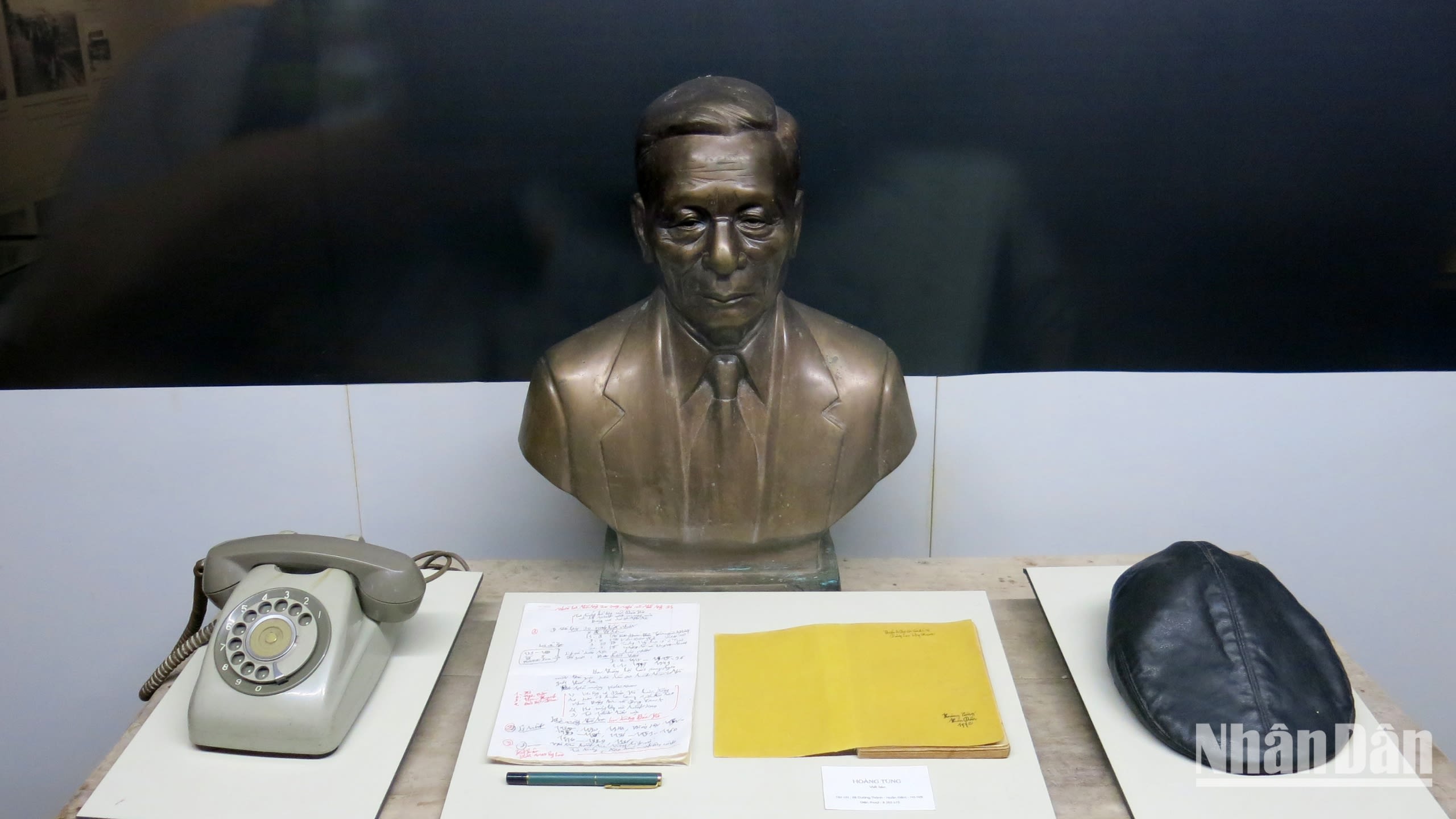
Portrait statue and some relics of journalist Hoang Tung on display at the Vietnam Press Museum. (Photo by NGAN ANH)
In early 1950, I was appointed as editor-in-chief of the Truth newspaper, the actual function of which was editor-in-chief. Before I came to take charge of this agency, this newspaper had gone through many periods. During the period of the Liberation Flag newspaper, Mr. Truong Chinh took on all tasks. At that time, there were Mr. Hoang Van Thu and Mr. Hoang Quoc Viet. When returning to Hanoi, the Party withdrew into secret activities, and the Truth newspaper was published with the addition of Mr. Le Huu Kieu and Mr. Thep Moi. In Viet Bac, there were Ha Xuan Truong and Quang Dam. When I came from War Zone III, Mr. Truong Chinh appointed me as editor-in-chief.
After a while, I became the Chief of the General Secretary 's Office, then went to study in China for a year. In 1953, I became the Chief of the Central Office. After Tran Quang Huy fell ill and Vu Tuan went to the land reform, I was both the Chief of the Office and in charge of the newspaper.
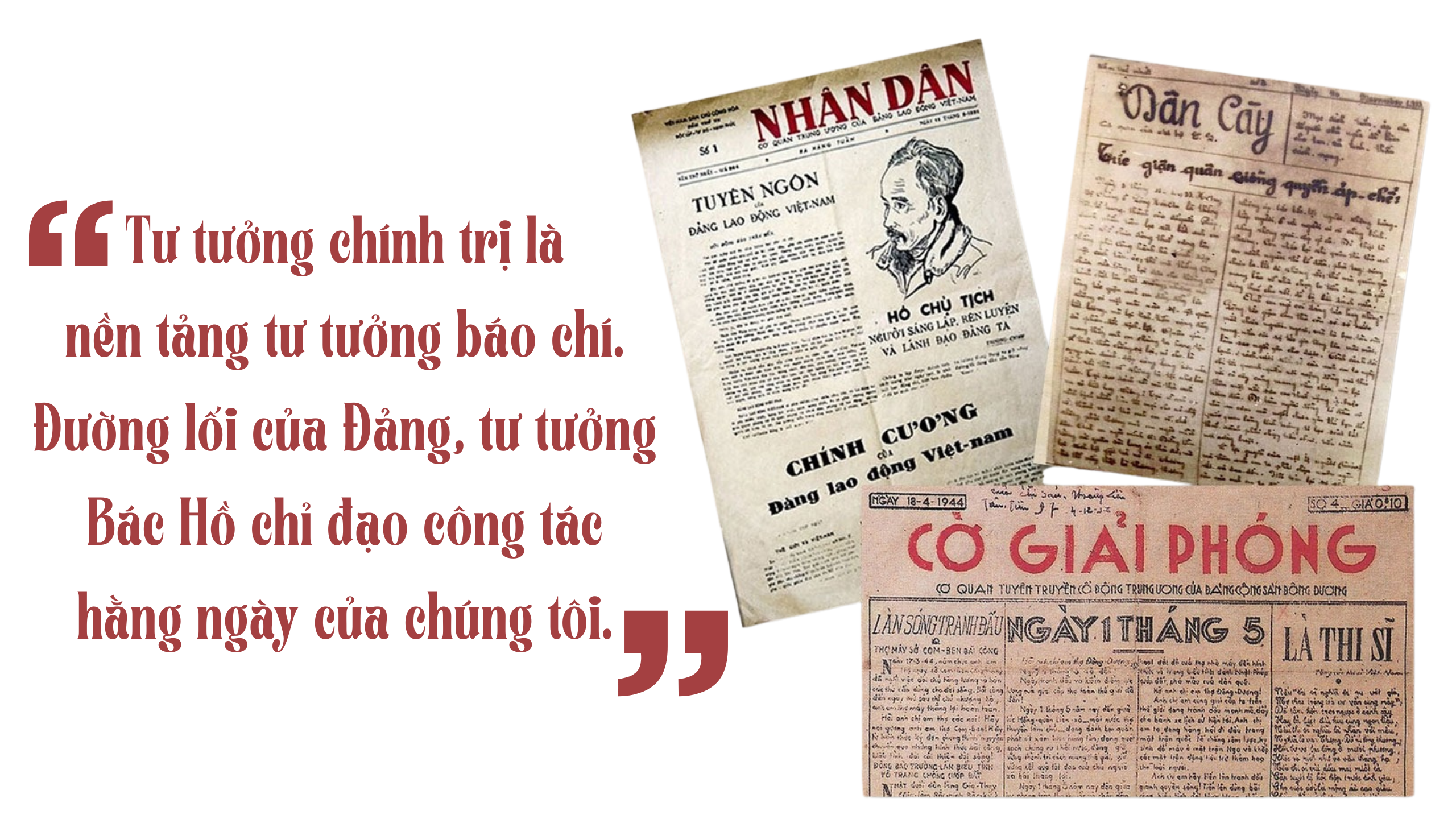
From 1953 to 1982, I was editor-in-chief of Nhan Dan Newspaper. From 1982 to 1986, I was Secretary of the Party Central Committee in charge of the Party's ideological and press work, replacing To Huu and still under the direction of Truong Chinh. I often participated in preparing for Central Committee conferences and Party Congresses. I often wrote editorials and commentaries. My articles in Su That were signed with my name, while those in Nhan Dan Newspaper were usually signed with the newspaper's name.
Political ideology is the foundation of journalistic ideology. The Party's guidelines and Uncle Ho's ideology guide our daily work. As different trends emerge in the international communist movement, we need to grasp our Party's ideology of independence and self-reliance even more firmly. By solving the problems of our country's revolution ourselves, our people have successively defeated the French and the Americans.
The team of journalists gathered around the newspapers Truth and People are all typical writers.
Journalist Hoang Tung
The team of journalists gathered around the newspapers Truth and People are all representative writers. Each has his own strengths and weaknesses.
Mr. Thep Moi had a talent for journalism and had a systematic university education. Mr. Quang Dam had a broad education. Ha Xuan Truong, Le Dien, and Phan Quang wrote solidly. Huu Tho and Ha Dang had a deep understanding of literature. Many people were directly taught by Truong Chinh - he was a great journalist. He paid meticulous attention to even specific issues of journalism. He was in charge, editor-in-chief, chief writer, and sometimes wrote almost an entire issue of the Liberation Flag. From ideological orientation, topics to how to structure an article, he was interested in teaching everyone. At that time, on the radio station, there were Mr. Tran Lam and Mr. Huynh Van Tieng, all intellectuals who came to the revolution early.
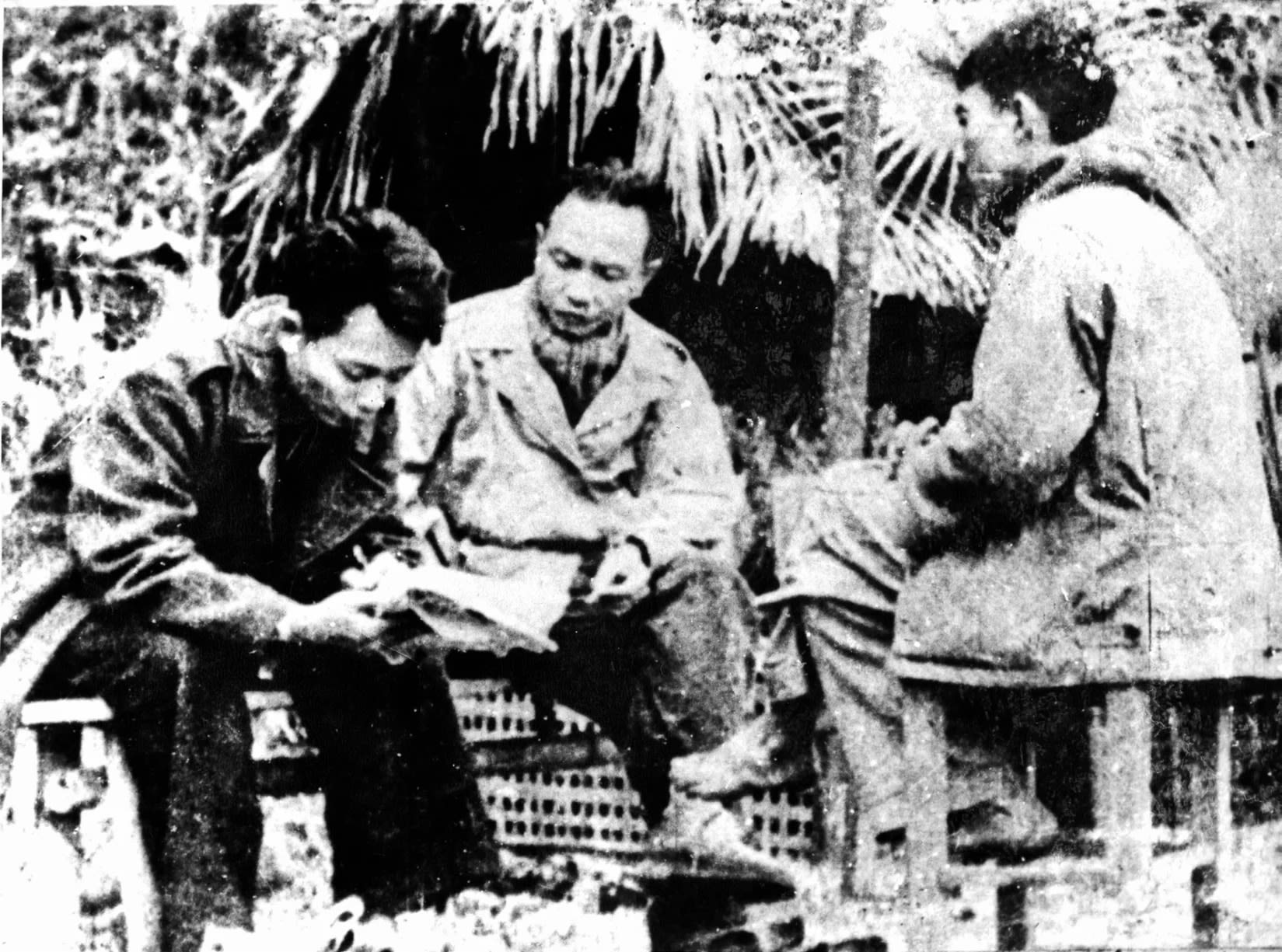
Comrade Truong Chinh, Thep Moi and Ha Xuan Truong approved the manuscript for the first issue of Nhan Dan Newspaper in 1951. (Photo courtesy)
Uncle Ho wrote quite regularly for Truth and People under different nicknames. The work "Improving the way of working" is very useful for building the Party, building the style and ethics of cadres. Uncle Ho's journalistic style is very unique, easy for readers to understand, simple and clear. The book "Stories in the life of President Ho" is very well written. The autobiography is very truthful.
Professor Ha Minh Duc: What memories do you have of working as a journalist during the war?
Journalist Hoang Tung: It is true that I worked as a journalist throughout the two wars against the French and the Americans. The Truth newspaper during the resistance war against the French was the voice of the Party, expressing the Party's viewpoints and policies on major issues of the country. Military news on the front line was mainly provided by the army, and we wrote about other areas of activity. The newspaper proactively launched many major campaigns based on advanced models that Uncle Ho cared about.
Entering the period of resistance against the US to save the country, our people's struggle attracted the attention of humanity. I often met foreign journalists and intellectuals who visited our country. They welcomed our independent and self-reliant path, including many famous journalists who wrote many articles to encourage our resistance.
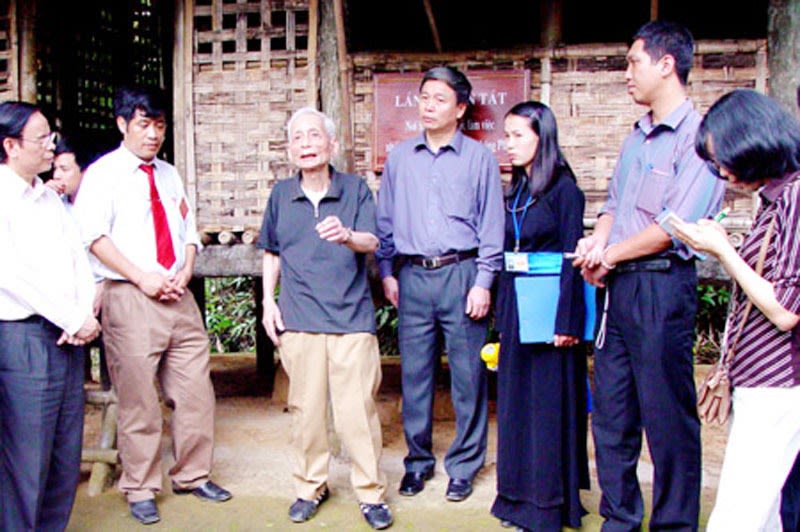
Journalist Hoang Tung during the inauguration ceremony of the monument stele at the birthplace of the Vietnam Journalists Association in Thai Nguyen. (Photo courtesy)
There were quite a number of journalists coming to Vietnam, including many famous journalists from the Soviet Union, China, France, the US, Australia... I had the duty to create all favorable conditions for journalists to have the opportunity to understand Vietnam to supplement our conditions to expand propaganda abroad. Progressive newspapers from the Soviet Union, China, France, Japan, Italy with permanent offices in Vietnam enthusiastically supported us. There had never been an event that brought together so many journalists on one side as the Vietnam war against the US. Jane Fonda with her husband Tom Hayden, along with Thomxky, Koraoai,... came to Vietnam.
At this time, Vietnamese journalists also wrote more and their writings improved. Thep Moi, Nguyen Thanh Le, Xuan Truong, Hong Ha, Huu Tho, Ha Dang all wrote a lot. Thep Moi, Le Dien, Le Dan, Hong Ha, Phan Quang, Ha Dang wrote sharply.
Professor Ha Minh Duc: Nhan Dan Newspaper often has the most successful column which is editorial. Current events, good orientation, concise content, and the ability to generalize are good qualities. Mr. Hoang Tung writes many editorials and commentaries. Please share some of your experiences with readers.
Journalist Hoang Tung: In journalism, I specialize in writing essays. Essay writers must train their thinking to be sharp and have the necessary knowledge. They must "cram" new things every day. Without studying and reading, without input, they cannot comment. They must also understand the life, level and mood of the reader.
Most of my articles in the past 30 years are unsigned. Having been a journalist for half a century, and in charge of Nhan Dan Newspaper for 30 years, we are a heavy-handed dogmatist. Saying that means that practice is not enough.
Today's press is richly developed, but in essence it is still news, not literature.
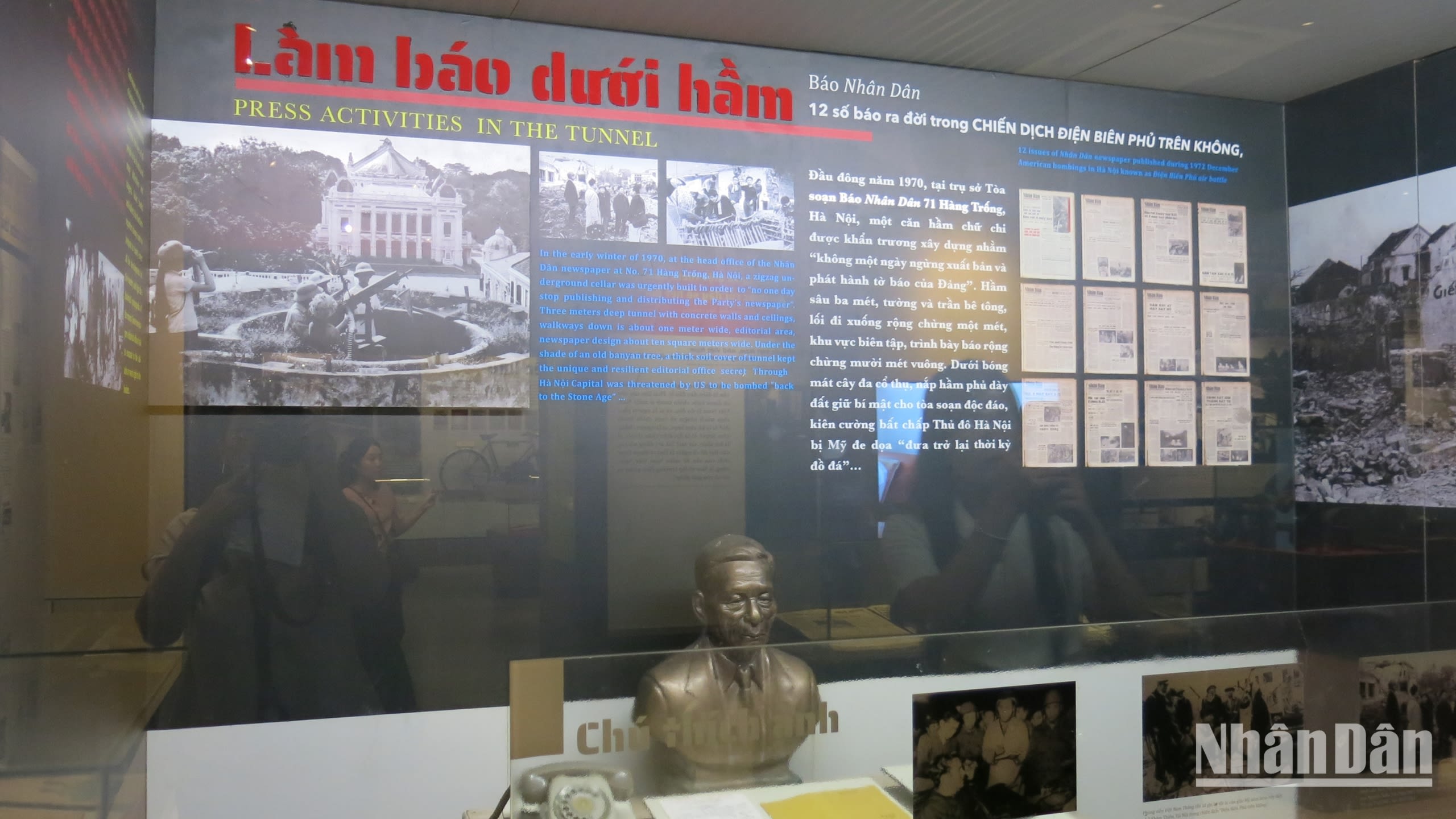
Space to recreate underground journalism scene at Nhan Dan Newspaper headquarters during 12 days and nights of Dien Bien Phu in the air event at Vietnam Press Museum. (Photo: NGAN ANH)
One side is logical thinking, the other side is figurative thinking. In journalism, no genre exists invariably. It changes with life, readers are different from time to time. Genres are changing. I like short forms that can say a lot. Urgent events are not suitable for long writing. Things that require in-depth research cannot be written in a hurry. Today's journalism develops in an industrial civilization. The media must be linked to the industrial revolution.
Besides printed newspapers, electronic newspapers are developing very quickly. In the new conditions, public opinion must be oriented. Mass-media contributes to creating social public opinion. Press public opinion must have orientation. The strongest orientation is through thematics. The most important orientation is political ideology and lifestyle orientation.
We start the revolution with propaganda work, and success is partly due to ideological work. Information from the top down is also needed. But the press must expand democracy and need multi-dimensional information. If we want the newspaper to be rich in information, we must constantly increase the amount of information from the bottom up, from sources of information from many different levels, not one-way, monologue, but multi-dimensional, dialogue is a characteristic of the press in the new period.
By doing so, newspapers reflect life more truthfully. Truthfulness is reflecting the kindness of life, not beautifying or blackening, telling it like it is. Our press information is quite developed but commentary is poor. Commentary is a guide to thinking, a guide to thinking, analyzing situations and events on a constantly changing and developing stream. Commentary has many different genres: editorial, commentary, essay, short and long commentary. Short commentary is quite developed today. A few hundred words, one or two thousand words, flexible, concise, highly informative. There is also a need for articles with scientific summaries. Editorials are the most typical type of commentary. Editorials guide the implementation of guidelines, policies, and ideas. News cannot be received spontaneously but must be guided. Editorials must be general, concise, and sufficient. The writer must grasp guidelines, policies, theories, and have a deep understanding of the work. Each general opinion is based on knowledge drawn from social activities. What to avoid is one-sided, simplistic explanations.
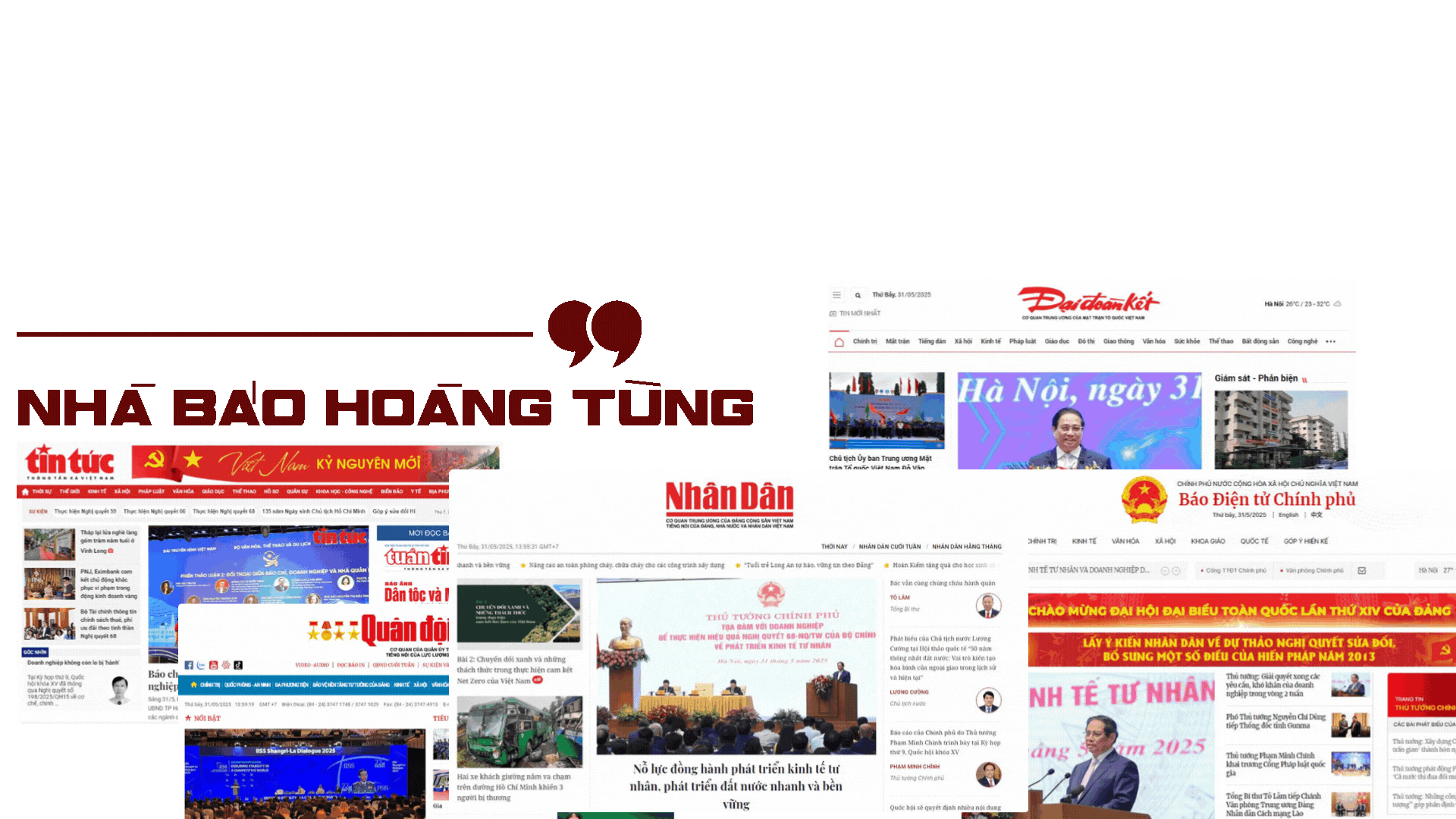
There are times when explanation is needed, but it must be of good quality. Editorial writing must be creative, not repetitive. It must breathe life into what you consider to be principles.
Creativity in journalism creates appeal and enhances the newspaper's reputation.
Since 1986, we have moved to a market economy. We affirm the market economy and must clearly see the strengths and limitations of this mechanism. However, many things must be experienced in Vietnam's reality to conclude the good and the bad.
Journalistic language is also a big problem. Journalistic language contributes significantly to the development of national language. Therefore, it cannot be written carelessly or carelessly. The language of the genre is even more important because it represents the science of thinking. Attention must also be paid to the context. Depending on the characteristics of the object, the language used is different. The language of each genre is not the same.
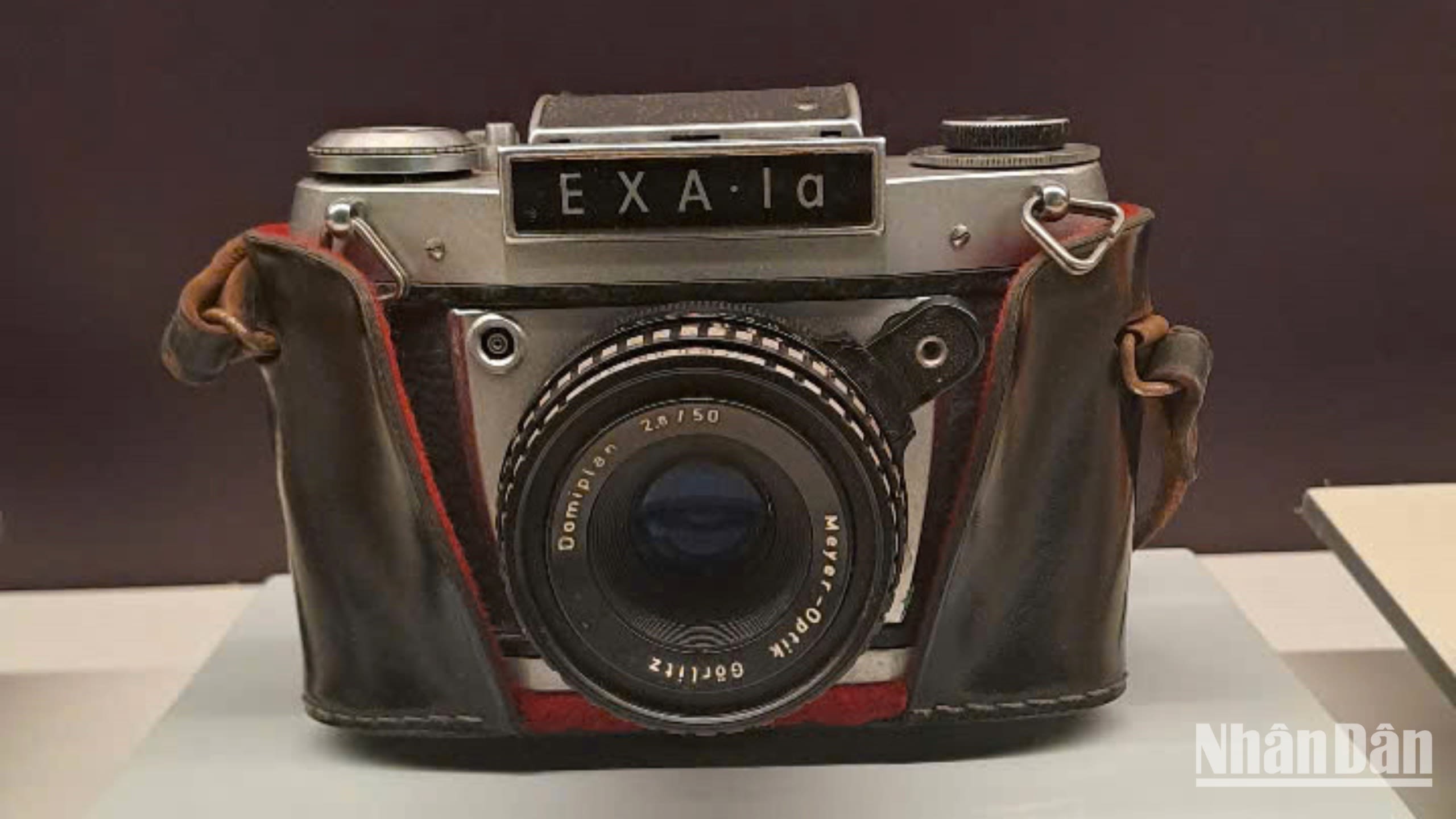
The camera used by journalist Hoang Tung from 1990-2000 is on display at the Vietnam Press Museum. (Photo: NGAN ANH)
Our nation has a tradition of argumentation. The argumentation developed early. Political argumentation appeared during the Ly and Tran dynasties. The Proclamation of Victory over the Wu is a great argument filled with the heroic inspiration of the nation. And especially in the modern period, Uncle Ho was the first sharp writer of revolutionary journalism. After him came Truong Chinh. The Declaration of Independence, the Call for National Resistance, the Call to Fight the Americans, Save the Country, and the Testament are outstanding literary works. The articles written by Truong Chinh in the 1940s are typical articles of the political style, such as "The Japanese and French Fight and Our Actions"... Truong Chinh wrote many good articles during the resistance war against France and the Americans, articles about the renovation process in our country.
Truong Chinh advised journalists that if they do not understand the issues, they should not write. Preparation is an important step that contributes to the success of an article.
Our conversation lasted all afternoon.

Excerpt from the book "Time and Witnesses" (Memoirs of Journalists, Volume II, Ha Minh Duc (editor-in-chief), National Political Publishing House - Truth, Hanoi, 2023)
Posted date: June 1, 2025
Photo: Nhan Dan Newspaper, VNA, NGAN ANH
Presented by: XUAN BACH, PHUONG NAM
Source: https://nhandan.vn/special/nha-bao-hoang-tung-tro-chuyen-cung-giao-su-ha-minh-duc/index.html


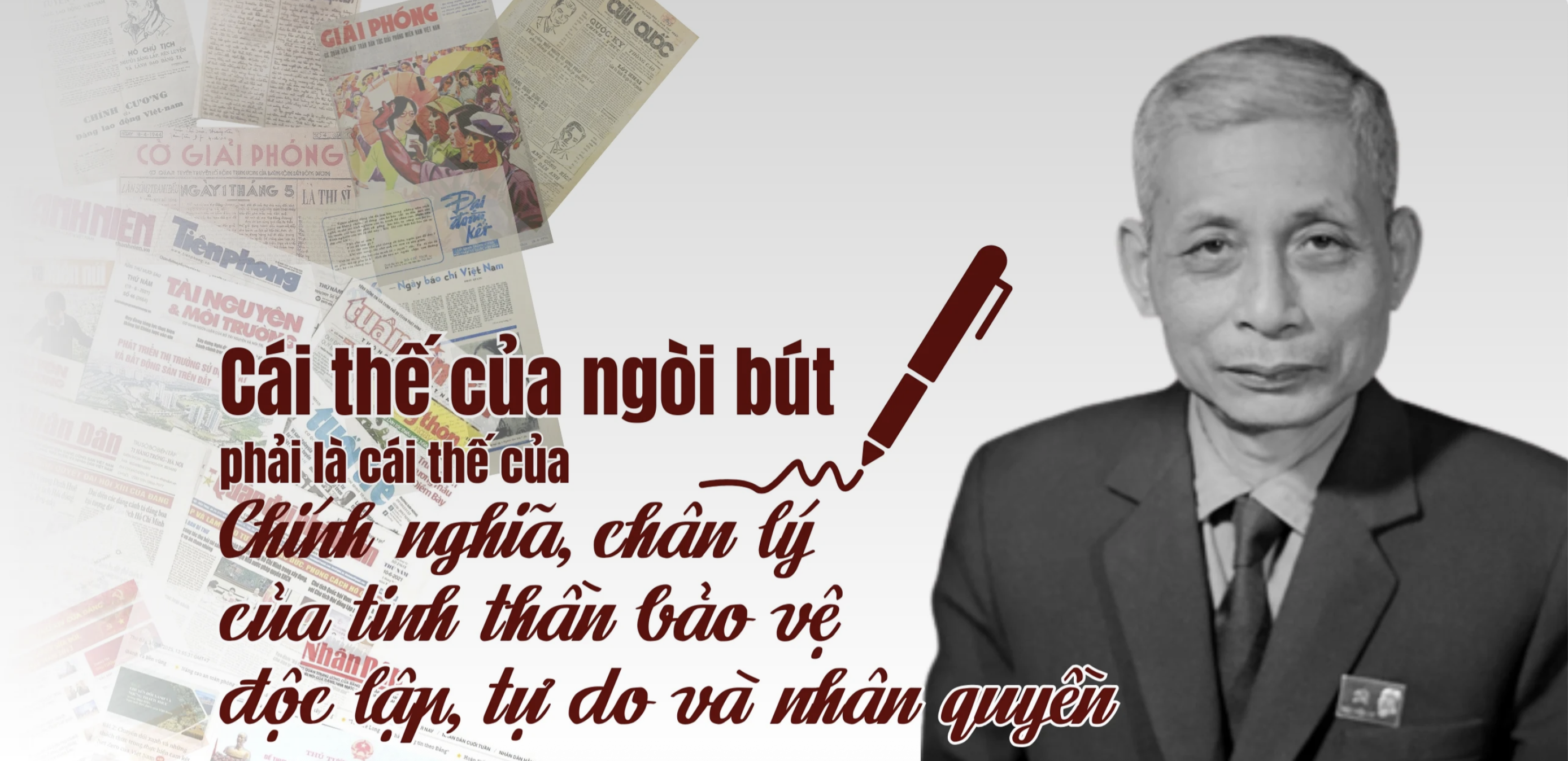

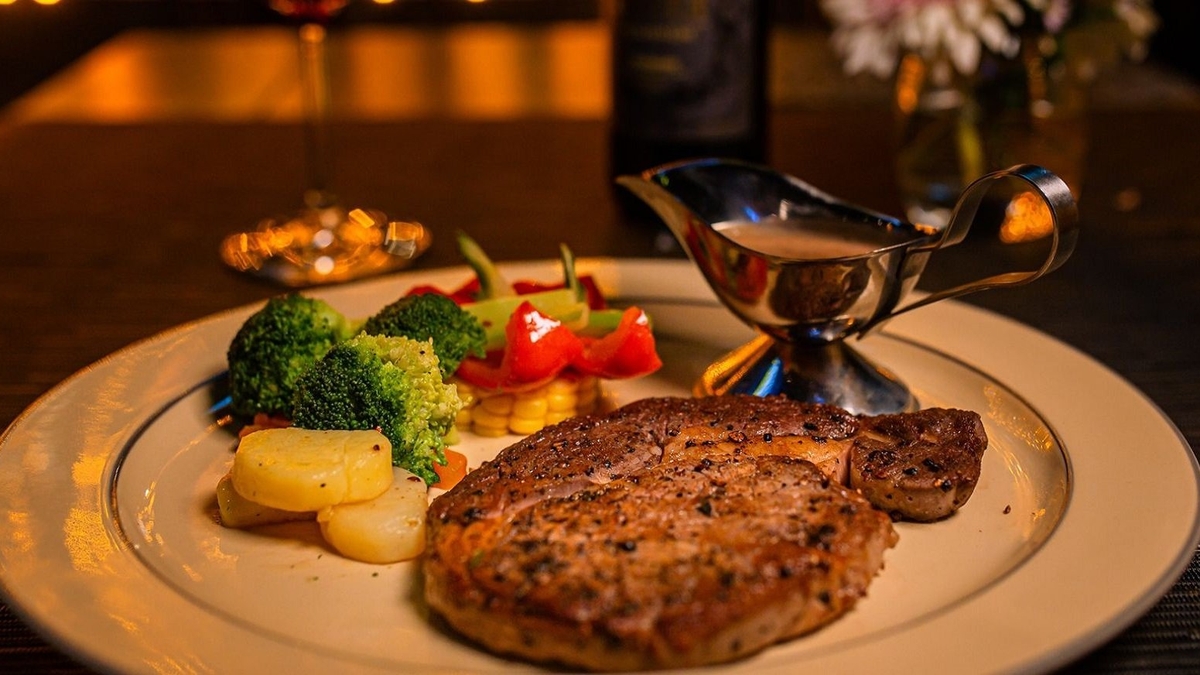

![[Photo] Prime Minister Pham Minh Chinh receives the delegation of the Semiconductor Manufacturing International (SEMI)](https://vphoto.vietnam.vn/thumb/1200x675/vietnam/resource/IMAGE/2025/11/06/1762434628831_dsc-0219-jpg.webp)


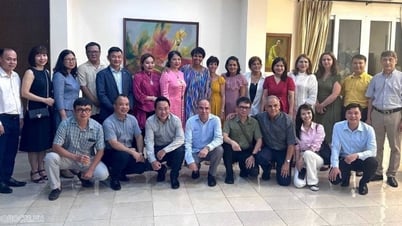

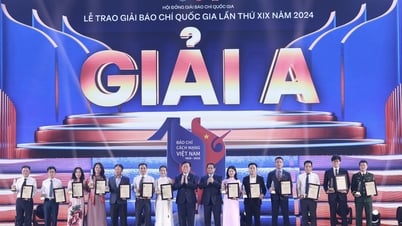

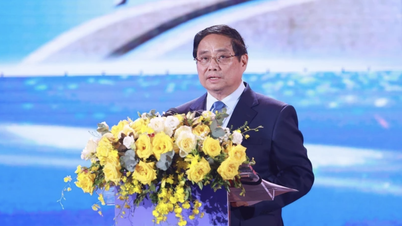

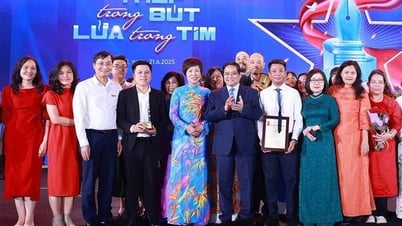

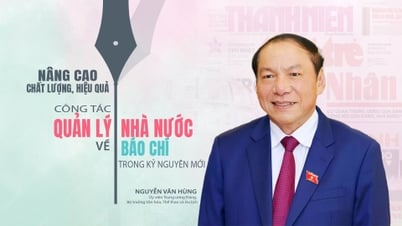
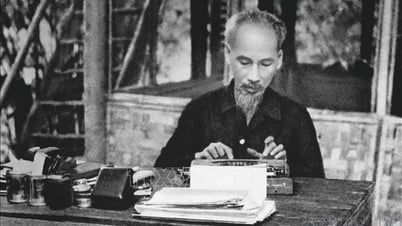












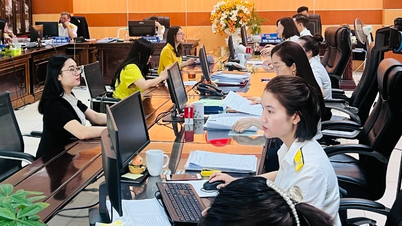

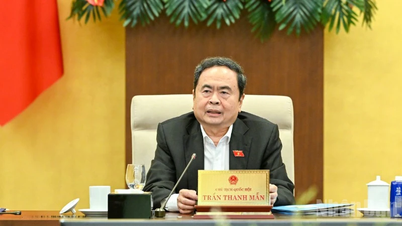
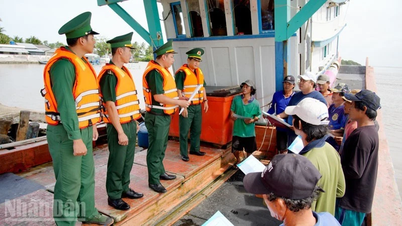
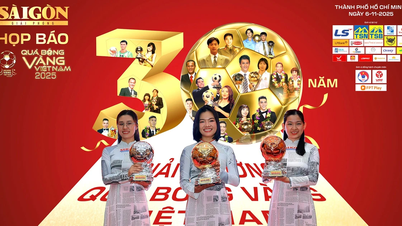
![[Video] The third National Press Award "For the cause of developing Vietnamese culture"](https://vphoto.vietnam.vn/thumb/402x226/vietnam/resource/IMAGE/2025/11/06/1762444834490_giai-bao-chi-vh-3937-jpg.webp)






































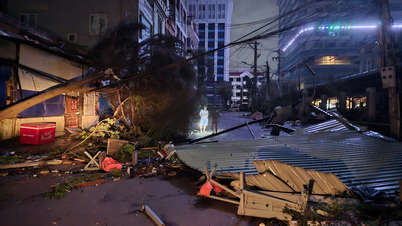
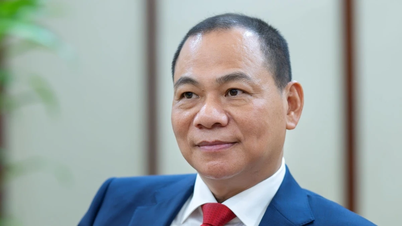
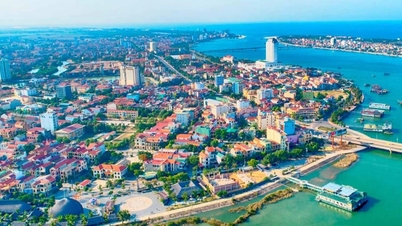


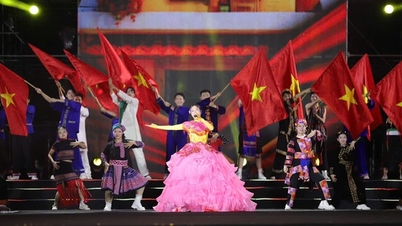











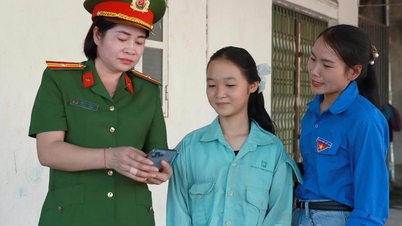
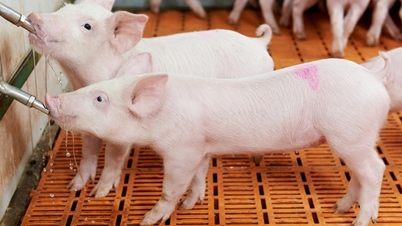





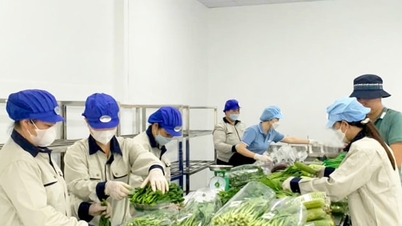










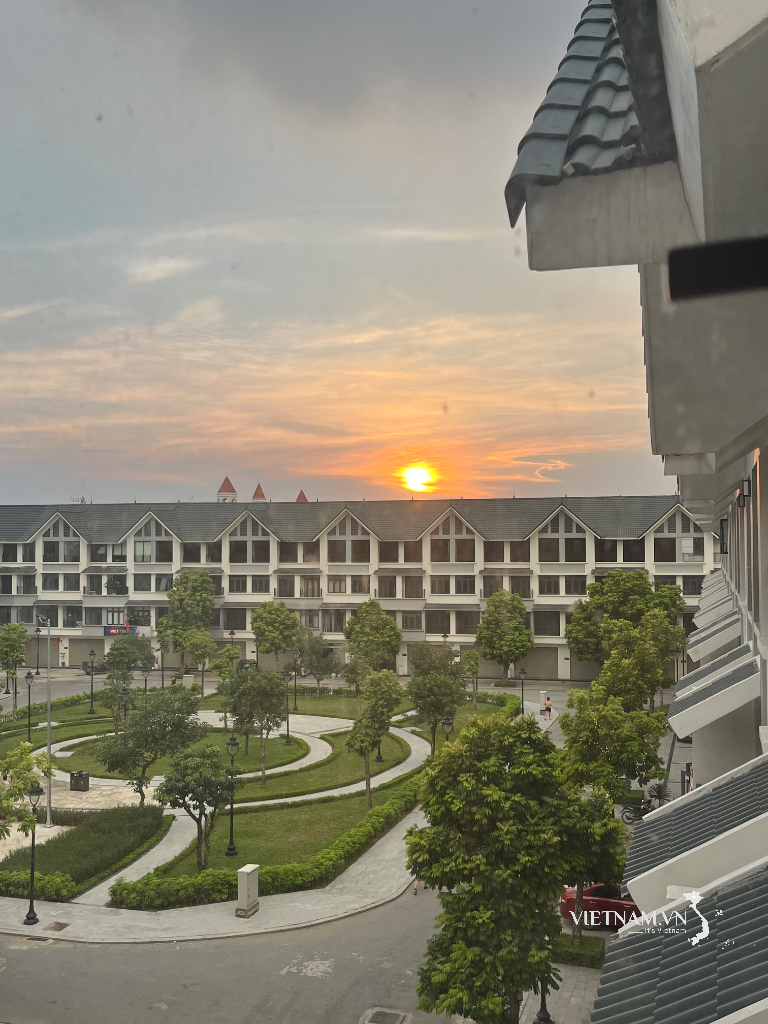


Comment (0)